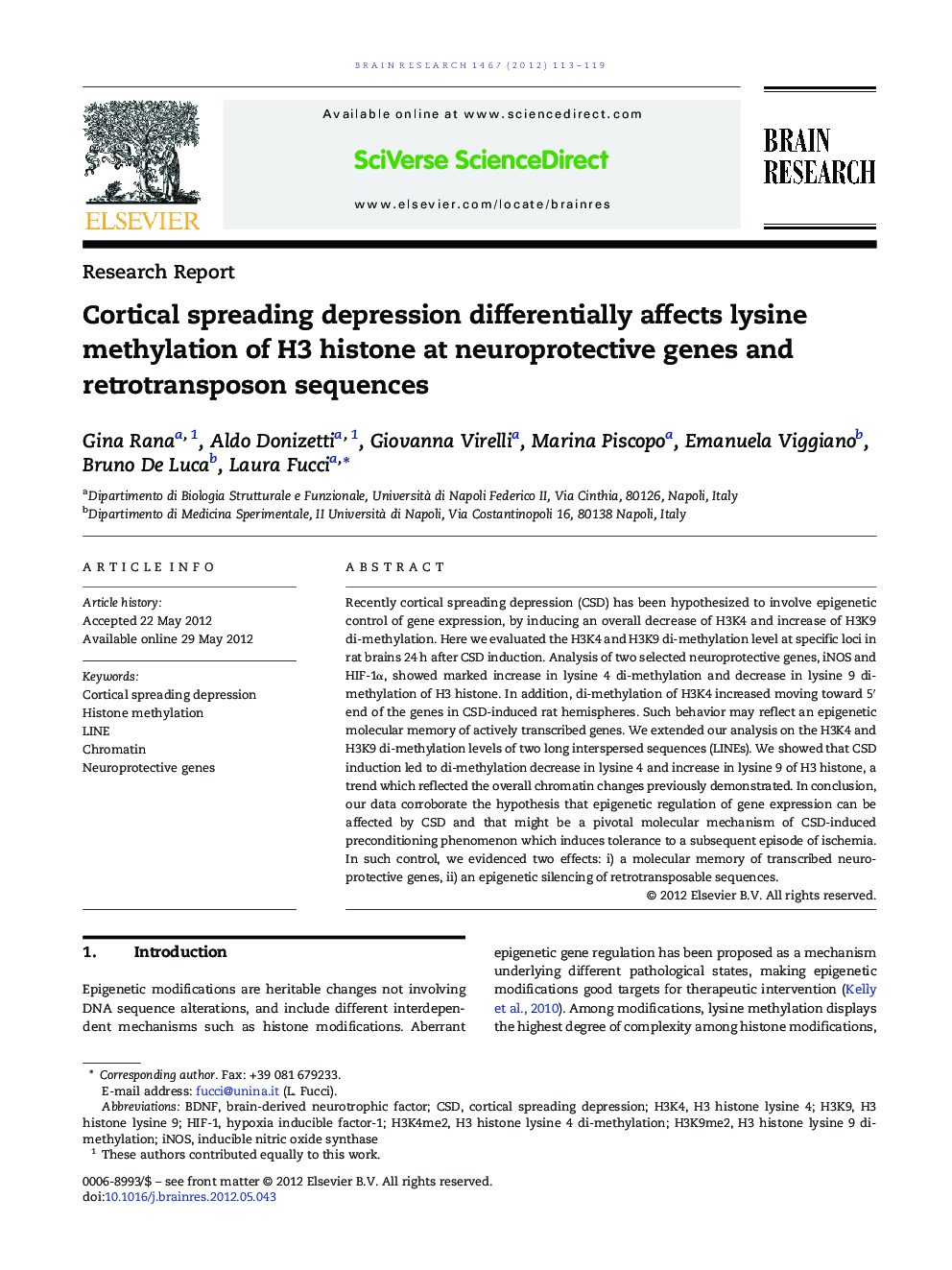| Article ID | Journal | Published Year | Pages | File Type |
|---|---|---|---|---|
| 4325150 | Brain Research | 2012 | 7 Pages |
Recently cortical spreading depression (CSD) has been hypothesized to involve epigenetic control of gene expression, by inducing an overall decrease of H3K4 and increase of H3K9 di-methylation. Here we evaluated the H3K4 and H3K9 di-methylation level at specific loci in rat brains 24 h after CSD induction. Analysis of two selected neuroprotective genes, iNOS and HIF-1α, showed marked increase in lysine 4 di-methylation and decrease in lysine 9 di-methylation of H3 histone. In addition, di-methylation of H3K4 increased moving toward 5′ end of the genes in CSD-induced rat hemispheres. Such behavior may reflect an epigenetic molecular memory of actively transcribed genes. We extended our analysis on the H3K4 and H3K9 di-methylation levels of two long interspersed sequences (LINEs). We showed that CSD induction led to di-methylation decrease in lysine 4 and increase in lysine 9 of H3 histone, a trend which reflected the overall chromatin changes previously demonstrated. In conclusion, our data corroborate the hypothesis that epigenetic regulation of gene expression can be affected by CSD and that might be a pivotal molecular mechanism of CSD-induced preconditioning phenomenon which induces tolerance to a subsequent episode of ischemia. In such control, we evidenced two effects: i) a molecular memory of transcribed neuroprotective genes, ii) an epigenetic silencing of retrotransposable sequences.
► CSD treatments increase H3 histone lysine 4 di-methylation of iNOS and HIF-1α. ► CSD treatments decrease H3 histone lysine 9 di-methylation of iNOS and HIF-1α. ► Di-methylation of lysine 4 increases moving toward 5′ end of the genes. ► CSD treatments decrease H3 histone lysine 4 di-methylation of LINEs. ► CSD treatments increase H3 histone lysine 4 di-methylation of LINEs.
